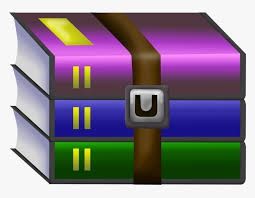Starting from:
$30
CSCI3280- Assignment 1 Solved
Introduction
The printing media, like newspapers or magazines, often uses images for illustration purposes. Given a common-quality newspaper, if zoom-in the image, we will see many dots composing the image. Image halftoning is one of the techniques to convert a gray or color image to the dot-pattern image.
In this assignment, you will be asked to implement a simple halftoning program. Different from traditional image halftoning, we generate results with given images instead of dot patterns.
with
Standard Requirements (100 point)
1. Program must be coded in ANSI C/C++ and uses standard libraries only
2. The compiled program must run in Windows 10 command prompt as a console program and accepts source bitmap (.bmp format) with the following syntax and save generated images to the current directory.
C:\ halftone <input.bmp <size1 <size2
halftone is your program executable
e.g. halftone monokuma.bmp creates an halftone for monokuma.bmp
<input.bmp is the path name to the source bitmap
<size1 and <size2 is the size of content image and patch images
e.g. halftone monokuma.bmp 64 16 creates an image with 64*64 patches whose size is 16*16.
3. Code fragment for read/write/resize .bmp format is provided in the skeleton code.
Hint: Please read the code carefully and try to use the functions.
4. You are required to submit source code only. We will use Visual Studio 2015 C++ compiler and have your program compiled via visual studio command prompt (ToolsàCommand Prompt) and the following command line (Please make sure your source code gets compiled well with it).
C:\ cl halftone.cpp bmp.cpp
5. Test bitmaps are included with the skeleton code for testing.
Implementation Details
Your program should process the RGB image similarly as the following steps:
1. Reading RGB image - Read in the .bmp as a RGB image, each pixel has R, G and B channels and each channel uses ‘unsigned char’ (i.e. one single byte) as their storage unit.
2. Resize RGB image - Resize the image with provided size. (Use the function in bmp
library)
3. Obtain Luma (Brightness) - Convert the RGB image into a grayscale one using the following formula (based on CCIR 601 luma formula)
Y’ = 0.299 * R + 0.587 * G + 0.114 * B
4. Quantization - Quantize the grayscale values into 3 levels ( i.e. 0 to 2)
5. Image Generation - Map each level to an element from the given image patches .
The printing media, like newspapers or magazines, often uses images for illustration purposes. Given a common-quality newspaper, if zoom-in the image, we will see many dots composing the image. Image halftoning is one of the techniques to convert a gray or color image to the dot-pattern image.
In this assignment, you will be asked to implement a simple halftoning program. Different from traditional image halftoning, we generate results with given images instead of dot patterns.
with
Standard Requirements (100 point)
1. Program must be coded in ANSI C/C++ and uses standard libraries only
2. The compiled program must run in Windows 10 command prompt as a console program and accepts source bitmap (.bmp format) with the following syntax and save generated images to the current directory.
C:\ halftone <input.bmp <size1 <size2
halftone is your program executable
e.g. halftone monokuma.bmp creates an halftone for monokuma.bmp
<input.bmp is the path name to the source bitmap
<size1 and <size2 is the size of content image and patch images
e.g. halftone monokuma.bmp 64 16 creates an image with 64*64 patches whose size is 16*16.
3. Code fragment for read/write/resize .bmp format is provided in the skeleton code.
Hint: Please read the code carefully and try to use the functions.
4. You are required to submit source code only. We will use Visual Studio 2015 C++ compiler and have your program compiled via visual studio command prompt (ToolsàCommand Prompt) and the following command line (Please make sure your source code gets compiled well with it).
C:\ cl halftone.cpp bmp.cpp
5. Test bitmaps are included with the skeleton code for testing.
Implementation Details
Your program should process the RGB image similarly as the following steps:
1. Reading RGB image - Read in the .bmp as a RGB image, each pixel has R, G and B channels and each channel uses ‘unsigned char’ (i.e. one single byte) as their storage unit.
2. Resize RGB image - Resize the image with provided size. (Use the function in bmp
library)
3. Obtain Luma (Brightness) - Convert the RGB image into a grayscale one using the following formula (based on CCIR 601 luma formula)
Y’ = 0.299 * R + 0.587 * G + 0.114 * B
4. Quantization - Quantize the grayscale values into 3 levels ( i.e. 0 to 2)
5. Image Generation - Map each level to an element from the given image patches .
1 file (7.3MB)



